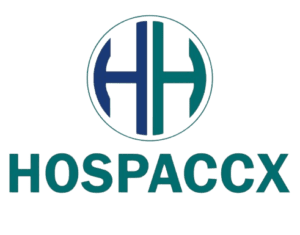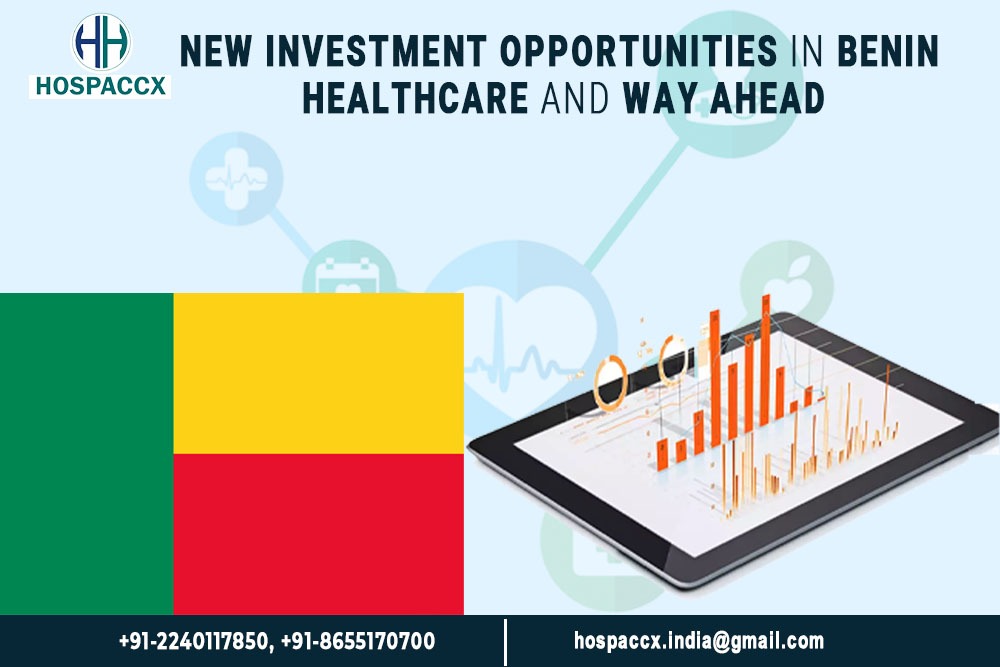NEW INVESTMENT OPPORTUNITIES IN BENIN HEALTHCARE
AND WAY AHEAD
Benin is a country located in the West African region. It is among the 30 poorest countries in the world. The Gross Domestic Product (GDP) in Benin was worth 15.65 billion US dollars in 2020 and expected to grow by 1.7% for the consecutive years. The fiscal deficit surged up to 4.5% of GDP. Private foreign investment is minimal, and therefore it accounts for the investment most of the times in healthcare sector. Due to this there are poorly developed economic indicators in Benin. To change this rudimentary economic indicator, there have been four projects launched as part of Benin’s $307 million Millennium Challenge Corporation (MCC). The Government designed the MCC to increase investment in healthcare and private sector activity through improving key institutional and physical infrastructure.
BUDGET ALLOCATION IN HEALTHCARE AFTER COVID-19
- Ministry of Health approved EUR 30 million to support the public health system to combat the COVID-19 pandemic.
- EUR 110 million was allocated to address drainage, enhance living conditions, safeguard property, and lessen the risk of contracting water-borne illnesses.
- Ministry of Health and FNEC granted 1,643,000 USD to enhance the institutional and operational capabilities of the health system.
- For health strategy at the community level and to ensure patients care, a grant of 3,650,000 USD was approved.
- The USAID will provide $745 million to build country capacity and resilience to prevent future epidemics and pandemics.
GOVERNMENT INVESTMENTS
Governments realized that strengthening and investing in their health system was essential to ensuring future economic stability as global health systems failed to cope with the problems posed by the Covid-19 epidemic.
By 2025, Benin intends to have a well-functioning healthcare system open to all dimensions of society. The government’s action program was on using information technology to develop its human resource and e-health skills. One of the government’s efforts, Kea Medicals, the digital innovative solution was initiated to speed up the healthcare system in hospitals and clinics. The initiative was implemented in five health zones and provided services to 104 major health facilities, 66 satellite facilities, five community hospitals, and five district teams.
Immunization
The public health objective and the kind of investment will influence whether a disease is evaluated against the epidemic or endemic framework, which will require planned preventive immunization, such as routine immunization, versus a stockpile or similar intervention. The Alliance in Benin Republic created a new VIS for the strategic years 2021–2025, to make sure that the vaccinations would probably be accessible over the next strategic era.
Universal Healthcare Coverage
UHC has been an objective for the government for decades. UHC 2030 provides a global platform and space for multiple stakeholders to connect, work together, and influence national and international commitments. Additionally, the government has allocated more than $600 million to continue vital Global Health initiatives in areas including nutrition, TB, and underdeveloped tropical illnesses. To promote the establishment of comprehensive health systems in nations that are emerging from crises, the Health Resilience Fund (HRF) contributed $10 million. By HRF future gains in global health development will be preserved, which will also improve vital institutions and infrastructure to make nations more robust in the future.
Health Insurance
Under the Human Capital Reinforcement Insurance project (L’Assurance pour le Renforcement du Capital Humain – ARCH), the government recently enacted legislation that progressively replaces the current system (Régime d’Assurance Maladie Universelle, or RAMU) with a universal healthcare system. The mandatory health insurance requirements for ARCH, which were first announced in 2016, began their pilot program among the underprivileged in a few Benin regions in 2019. By 2030, the provisions of ARCH are anticipated to be completely functioning. This social health coverage scheme is aimed at protecting the entire Beninese population against the risk of disease and its consequences.
Medical equipment
Nearly 95% of the medical technology used in the Benin Republic is imported. More than $10,600,000 USD, or about 20% of the national health budget, is spent annually on medical equipment and supplies for healthcare facilities. Benin’s overall health care expenditures include a large portion of medical equipment and supplies, giving the investors opportunity to invest in it.
Health infrastructure
Government initiative – The government is supporting commitments of $100 to $120 million for the healthcare infrastructure. Recently, the Republic of Benin’s Ministry of Health entered into a contract with a team led by Bouygues Bâtiment International to plan and build a university hospital.
According to Bouygues Construction, the technological platform will include nine operating rooms, an A&E unit, a laboratory, medical imaging, and three day hospitals. The project will also see the construction of classrooms, staff housing, a morgue, and medical, catering, and logistical technical spaces. The new university hospital in Benin is anticipated to open its doors in 2023.
Private initiatives – A $187 million loan from the International Development Association (IDA)* has been granted by the World Bank to assist Benin in enhancing the standard and accessibility of basic healthcare services as well as the country’s ability to respond to public health emergencies. Nearly nine million individuals will receive essential health services from this initiative, and more than four million children will receive basic nutrition assistance. The project will also assist Benin in strengthening disease surveillance and its capacity to react swiftly and effectively to public health emergencies.
Virtual care in healthcare
Digital technology and healthcare delivery systems are combined to provide virtual care. Global data estimates that sales involving virtual care were worth $57 billion in 2021. Healthcare digitization will provide access to underserved populations in remote regions and raise the standard of healthcare administration. The telehealth and remote patient monitoring segments are part of the virtual care environment. Telehealth is the capacity to perform healthcare visits, examinations, and prescription pharmaceutical purchases through live chat, video, or phone.
Private initiatives in virtual care: –
On March 29, 2022 Optum ventures, blue cross blue field, US-based provider of digitally-enabled child behavioural health and family support services contributed to the $105 million.
Martin Ventures and Adam Boehler provided $3.2 million in venture capital to StationMD on March 31, 2022, a US-based healthcare startup that employs telemedicine to provide medical treatment to persons with intellectual and developmental disabilities.
Conclusion
Emerging nations like Benin offer investors a lot of opportunities. Countries like the United States, Singapore, and Abu Dhabi are investing in healthcare in Benin, assuring the nation’s economic prosperity and also creating opportunities for foreign investment. With several government programmes and financing, Benin’s healthcare plans will guarantee everyone’s access to high-quality healthcare. The healthcare industry hopes to offer a range of options that will enhance standard and inexpensive access to all healthcare services.
For more information about the Country and Healthcare opportunities in Benin, you can visit the company website on www.hospaccxconsulting.com or contact us directly.
Related Team Members










